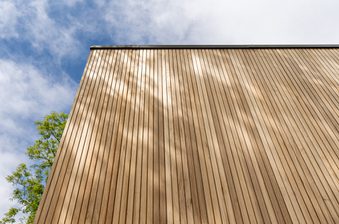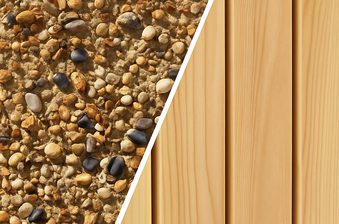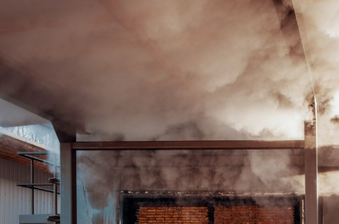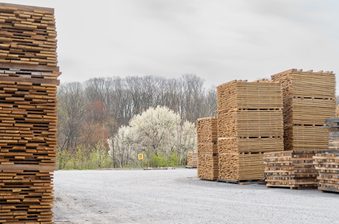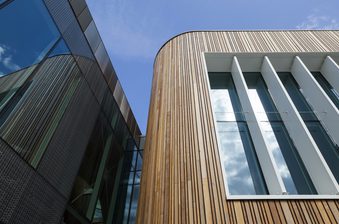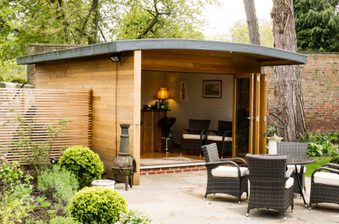Researching your next flooring project? You’ll probably have heard of two very popular flooring choices — solid hardwood flooring (also known as solid wood flooring) and engineered flooring.
Here, we’ll explain the key differences between the two, as well as guiding you in the direction of the ideal flooring choice for your next project.
Solid Hardwood vs. Engineered Wood Flooring: What’s The Difference?
Solid hardwood flooring is made of the same timber species throughout its entire thickness — explaining why it’s often referred to as simply solid wood flooring. Engineered flooring, on the other hand, consists of a thin layer of hardwood bonded on top of a high-quality plywood.
Solid wood flooring usually comes with a tongue and groove profile that is milled at a machining facility, enabling the boards to fit together. These are then nailed down to a sub-floor. Engineered flooring is nailed or glued down.
Engineered flooring can contain a number of plies (three, five, or even nine or 10); a greater amount usually correlates with a higher price. Engineered flooring is not to be confused with laminate or vinyl flooring.
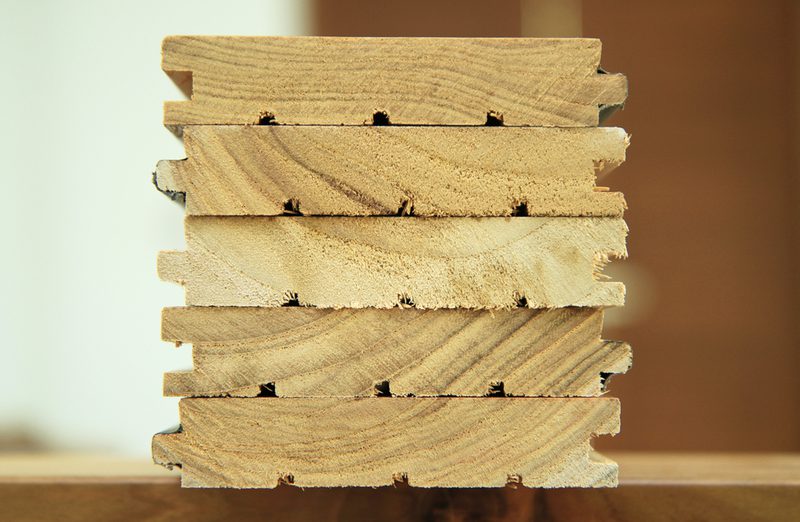

Oak, Walnut and Elm are some of the most popular species for both solid wood and engineered floors, but exotic hardwoods like Zebrano and Wenge can add a bold, luxurious touch.
Hardwood and engineered flooring look very alike once installed, both performing similar roles excellently. All else equal, your decision on which is ‘better’ out of solid hardwood or engineered flooring may depend on…
- Stability — In certain conditions, solid hardwood flooring can warp; engineered flooring is more resistant to this.
- Lifespan — Solid hardwood flooring lasts longer than engineered flooring because it can be sanded and refinished many times.
- Budget — Solid hardwood flooring is usually more expensive than engineered flooring.
Below, we’ll explain more about these differences — and hopefully help you to choose the perfect floor for your property!
Solid Hardwood vs. Engineered Flooring: Which one is best for my home?
When making your choice between hardwood or engineered flooring, consider the following.
Appearance
When it comes to how it looks, your choice between solid wood and engineered flooring is all a matter of personal preference. Solid wood and engineered flooring are both available in a diverse range of timber species, grades and colours, giving you plenty of design freedom.
If you’re looking for a classic, traditional flooring choice, you can’t go wrong with oak or perhaps ash for a lighter, livelier touch. There’s a wide range of beautiful hardwood species that all make excellent flooring.
For both engineered and solid wood floors, you can choose from a number of grades. Prime grades, for example, are generally free of knots and perfect for a contemporary style — Rustic or pippy grades contain various knots and have more overall character, suiting a country-style setting.
It’s worth noting that solid wood floors usually come unfinished, whereas engineered flooring tends to come pre-finished to a certain colour/shade of your choosing. If you wish to exercise freedom in refinishing your floor further down the line, solid wood would be the better choice.
All in all, when it comes to appearance, your choice between solid and hardwood flooring is all personal preference. As timber experts, we can assure you that engineered and solid wood floors both look incredible!
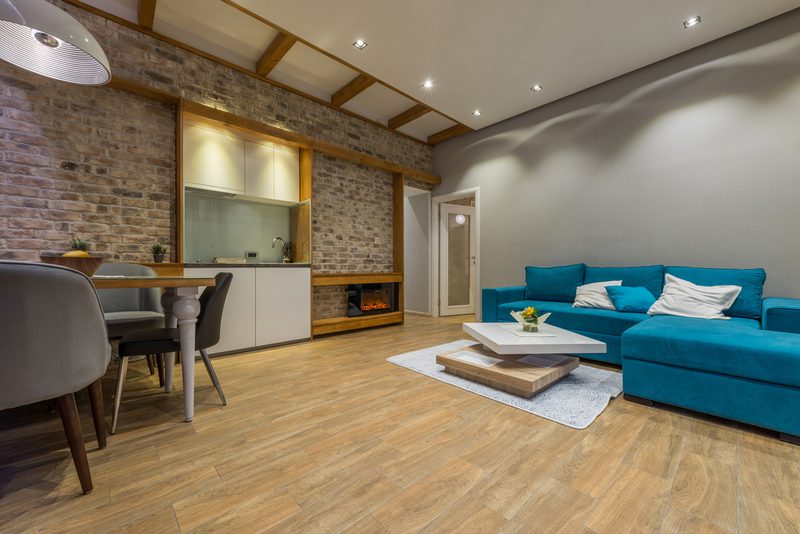
Stability & heat performance
Both solid wood and engineered flooring are stable, but consider which room the flooring will be installed on.
Moisture and heat can distort solid wood flooring, so it’s not suitable for conservatories, bathrooms or any room with a high or low temperature or underfloor heating. A very hot room can cause solid wood to dry out and shrink or cold/dampness causes moisture to be absorbed which leads to swelling.
Engineered flooring, on the other hand, has a plywood component in each board. This makes it less prone to warping and therefore a more suitable choice for installation with a concrete subfloor or in rooms with more fluctuations in temperature or an underfloor heating system.
When it comes to stability, engineered flooring wins.
Lifespan
Expect a solid hardwood floor to give you anywhere between 80 to 100 years’ service, compared to around 50 years for a well-looked-after engineered floor.
Because it is solid all the way through, solid hardwood flooring can be sanded and refinished several times, giving a new lease of life each time — and therefore a longer lifespan. Realistically, an engineered floor can only be refinished once, shortening its longevity.
Durability & upkeep
Hardwood floors — whether solid or engineered — are incredibly durable and strong. With the right care, both can look stunning for decades.
In terms of upkeep, solid and engineered flooring will benefit from a varnish coat on its surface every three to five years.
Care & cleaning
The less cleaning the better, right? As you probably know, solid and engineered floors are possibly the lowest maintenance floors out there, requiring very little upkeep. A simple sweep, vacuum and occasional damp mopping will do the trick.
Budget
Costs for solid wood and engineered flooring can be broadly grouped into three pricing tiers: low price range in the region of £25-£35m², mid-range £35-£45m² and high-range from £45-£90m².
- Low-range: The 3-ply engineered flooring is yours at the lowest price and comes in cheaper than solid hardwood flooring.
- Mid-range: In the mid-range are 5-ply engineered, as well as the more usual solid hardwood floor species (for example Oak and Elm).
- High-range: Towards the higher end of the range, you will find the 9-ply engineered floors and the more exotic species of solid hardwoods (think Zebrano, Wenge, Black Walnut).
For the keen DIY-ers out there, or those looking for a cheaper installation fee, engineered flooring is a better option. This is because it lends itself to numerous methods of installation, including stapling, nailing, gluing or even floating - it can also have a click together system!
It's worth noting that prices can change and fluctuate quite quickly — so it's always worth getting in touch with our team for an up-to-date idea of cost for your project.
Sizes
Solid wood floor boards are also usually narrower than engineered boards because of the potential movement. If you’re looking for a wider board then go for engineered for stability.
Another difference: virtually all engineered flooring is supplied with micro-bevel edges. This creates definition between planks, whereas solid tends to be square edged, for a smooth, seamless look.
Environmental impact
In comparison to other flooring options such as carpeting (which typically need to be replaced every five-to-ten years), both engineered and solid timber flooring represent an environmentally-friendly option — after all, wood is a renewable resource which grows from the Earth and can be replanted.
As engineered flooring only has a layer of hardwood on top, it is a more environmentally-friendly option than solid hardwood, where the whole floorboard is solid timber.
If you have your heart set on traditional solid hardwood flooring and want to keep things 'green', consider opting for a species like European Oak or American White Oak, instead of exotic, rare and slow-growing options like Wenge or Zebrano. You'll also save a pretty penny!
If sustainability is a key concern, make sure to also keep your eyes peeled for merchants who provide FSC-certified timber options (like us!).
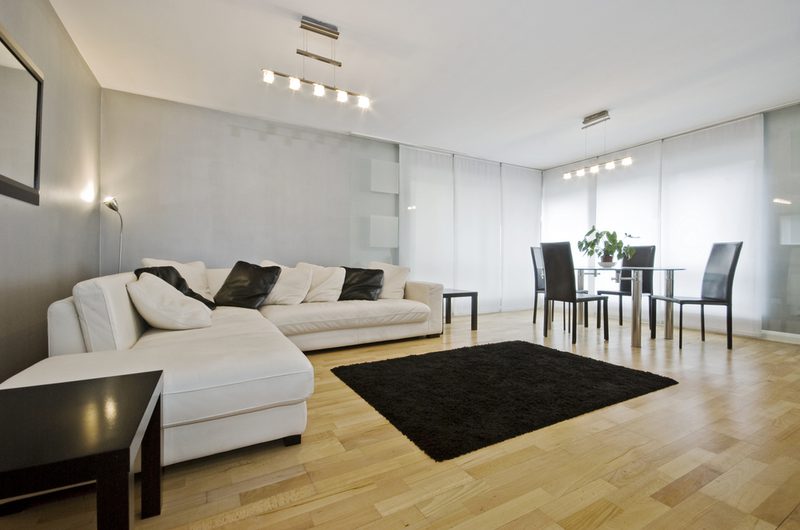
Getting started: What are my options?
At Duffield Timber, we have decades of experience in providing customers with the highest quality flooring. Whether a breathtaking solid wood floor or a beautiful, bespoke engineered solution, we’re bound to have the perfect match for your home.
For solid wood flooring, we stock a wide range of durable, beautiful timber species; you’ll also be able to choose the grade to suit your property. Solid wood flooring boards are usually 20mm thick, with a tongue and groove profile; standard widths are 140mm and 190mm, although a bespoke service is available.

